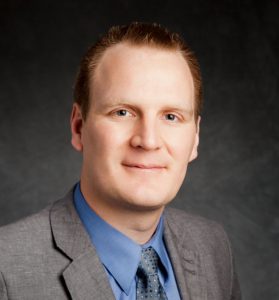Tutorial presentations will be held on Monday June 25
Robert Pilawa-Podgurski
University of California, Berkeley
Hybrid switched-capacitor power converters
This tutorial will cover the topic of hybrid switched-capacitor (SC) power converters. This class of converters has received increased attention lately, owing to superior power density and efficiency compared to conventional approaches. Starting with a detailed overview and analysis of conventional SC power converters, the limitations and design constraints of SC converters will be highlighted. Moreover, derivation of the fast and slow switching limits, along with SC circuit analysis tools such as charge transfer analysis will be covered. The concept of soft charging in SC converters through current source behavior and resonant operation will be introduced, along with analytical techniques for determining which SC converter topologies are amenable to this hybrid mode of operation. Various methods for evaluating hybrid SC converter topologies along with figures of merit for different circuit topologies will be discussed, along with recent examples of high performance hardware prototypes. Finally, practical challenges such as gate driving and capacitor voltage balancing will be discussed, along with recent proposed techniques to mitigate such difficulties.
|
Robert Pilawa-Podgurski is currently an Associate Professor in the Electrical Engineering and Computer Science Department at the University of California, Berkeley. Previously, he was an Associate Professor in Electrical and Computer Engineering at the University of Illinois Urbana-Champaign. He received his BS, MEng, and PhD degrees from MIT. He performs research in the area of power electronics. His research interests include renewable energy applications, electric vehicles, energy harvesting, CMOS power management, high density and high efficiency power converters, and advanced control of power converters. Dr. Pilawa-Podgurski received the Chorafas Award for outstanding MIT EECS Master’s thesis, the Google Faculty Research Award in 2013, and the 2014 Richard M. Bass Outstanding Young Power Electronics Engineer Award of the IEEE Power Electronics Society, given annually to one individual for outstanding contributions to the field of power electronics before the age of 35. In 2015, he received the Air Force Office of Scientific Research Young Investigator Award, the UIUC Dean’s Award for Excellence in Research in 2016, the UIUC Campus Distinguished Promotion Award in 2017, and the UIUC ECE Ronald W. Pratt Faculty Outstanding Teaching Award in 2017. Since 2014, he serves as Associate Editor for IEEE Transactions on Power Electronics, and for IEEE Journal of Emerging and Selected Topics in Power Electronics. He is co-author of eight IEEE prize papers.
|
